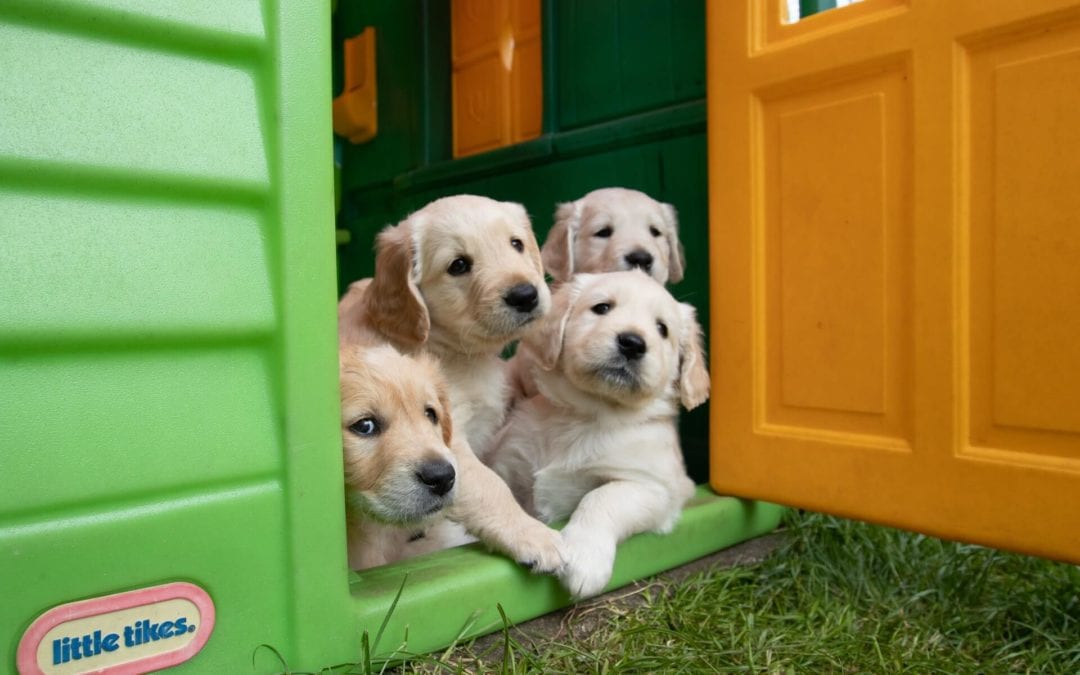So, you just brought home that new, adorable puppy. Congratulations! But now what? There is an overwhelming amount of information to learn as a new puppy owner, from parasite prevention to vaccines to food choices. One thing that seems to be often forgotten however is socialization. The term socialization sounds like throwing a party for puppies to play together. In reality, we mean exposure; in a positive way, to experiences, animals, and people that will shape future behaviors.
We know that socialization is extremely important in young dogs to help avoid behavioral issues later in life. From previous studies, there appears to be a magic window between 3 and 16 weeks of age during which learning is the most important. While this does not mean that you can’t teach your old dogs new tricks, we do know that earlier is better for socialization. It should be our goal to expose young puppies to as many sights, sounds, experiences, other pets, and people as safely possible during this time frame. These exposures need to be made positive, using lots of praise, comfort, and food rewards. If at any time you notice fearful or scared behavior in your puppy, please remove them from the situation that is causing anxiety. Some puppies will be ready to dive into the deep end and do everything from day one, but many will need to take slower baby steps.
There are many checklists available from different resources that list specific scenarios to expose your puppy to, but in general they all include:
- Exposure to other dogs and pets should occur early. Playdates with friends and family members’ animals that are healthy, vaccinated and dog-friendly are a great idea!
- Get your puppy used to physical touch and restraint. This means doing a mini physical exam on a regular basis. Be sure to include handling the ears, feet/nails, and belly. This can go a long way towards making nail trims and vet visits less scary later in life.
- Take weekly car rides to make the car a happy, safe place. Be sure to use a seat belt!
- Create a positive environment for self-play with toys and for naps/sleep in a crate so that the fear of separation from the family is reduced.
- Meet multiple new people and visit at least one new place per week. This allows your puppy to learn about people that look different, such as wearing hats, sunglasses, or having a beard in a positive way. While this has obviously been challenging during the pandemic, be safe and get creative!
- Sounds such as alarms, horns, fireworks, and thunder can be naturally scary to dogs, but associating a high-value reward with them can help reduce noise phobias from developing in the future. Remember if you show anxiety your pet will pick up on that and become anxious too.
- Puppy classes should begin as early as 8 weeks of age as long as your puppy has received at least one high-quality DHPP vaccine from a veterinarian. The vaccine should be given at least 7 days prior to the class. In addition, the training facility should be clean and all the other dogs should be required to be up to date on vaccination according to their age and showing no signs of illness.
Written by Kevin Rebrovich, DVM
Whiskers and Paws Animal Hospital

